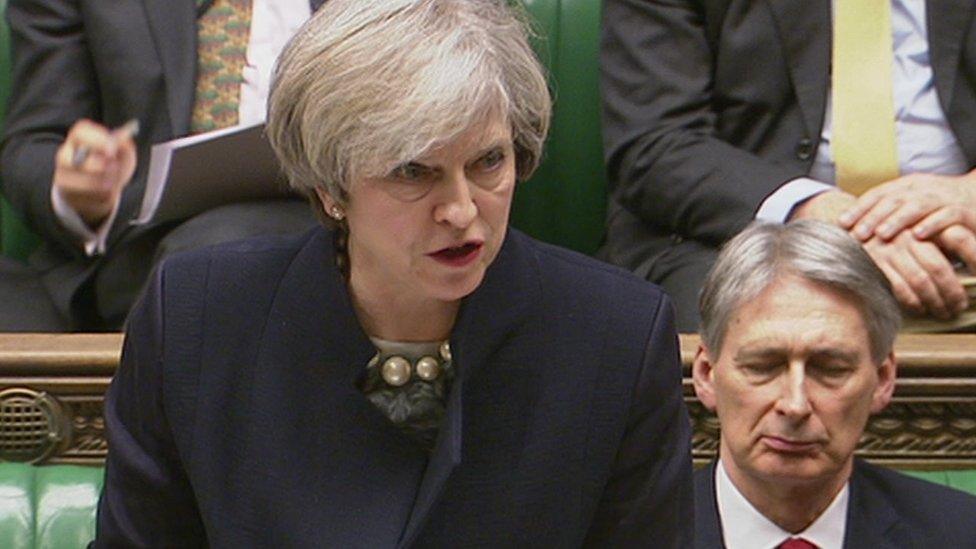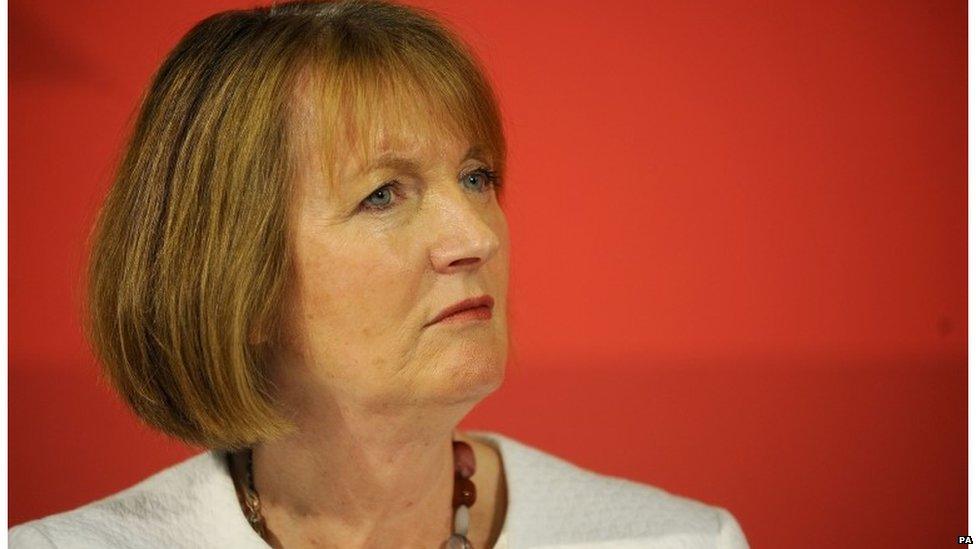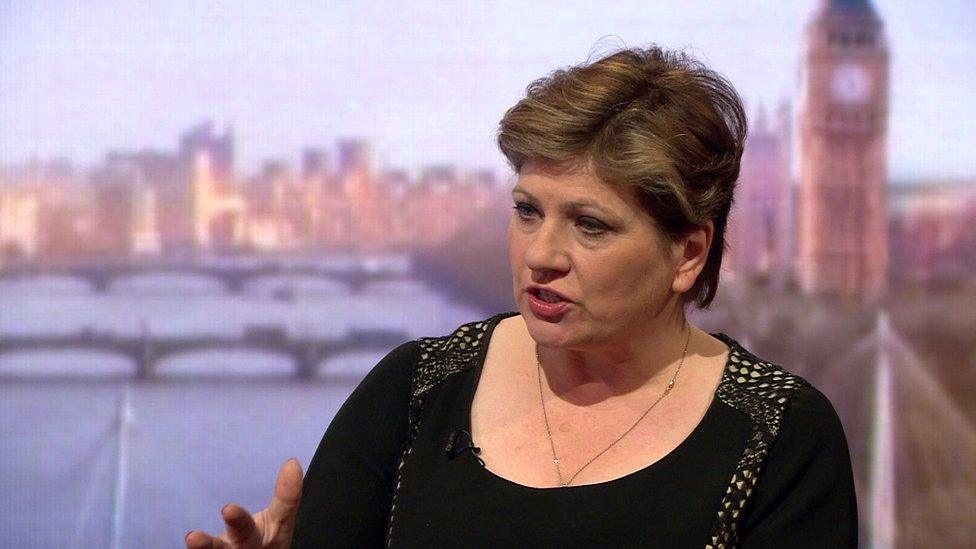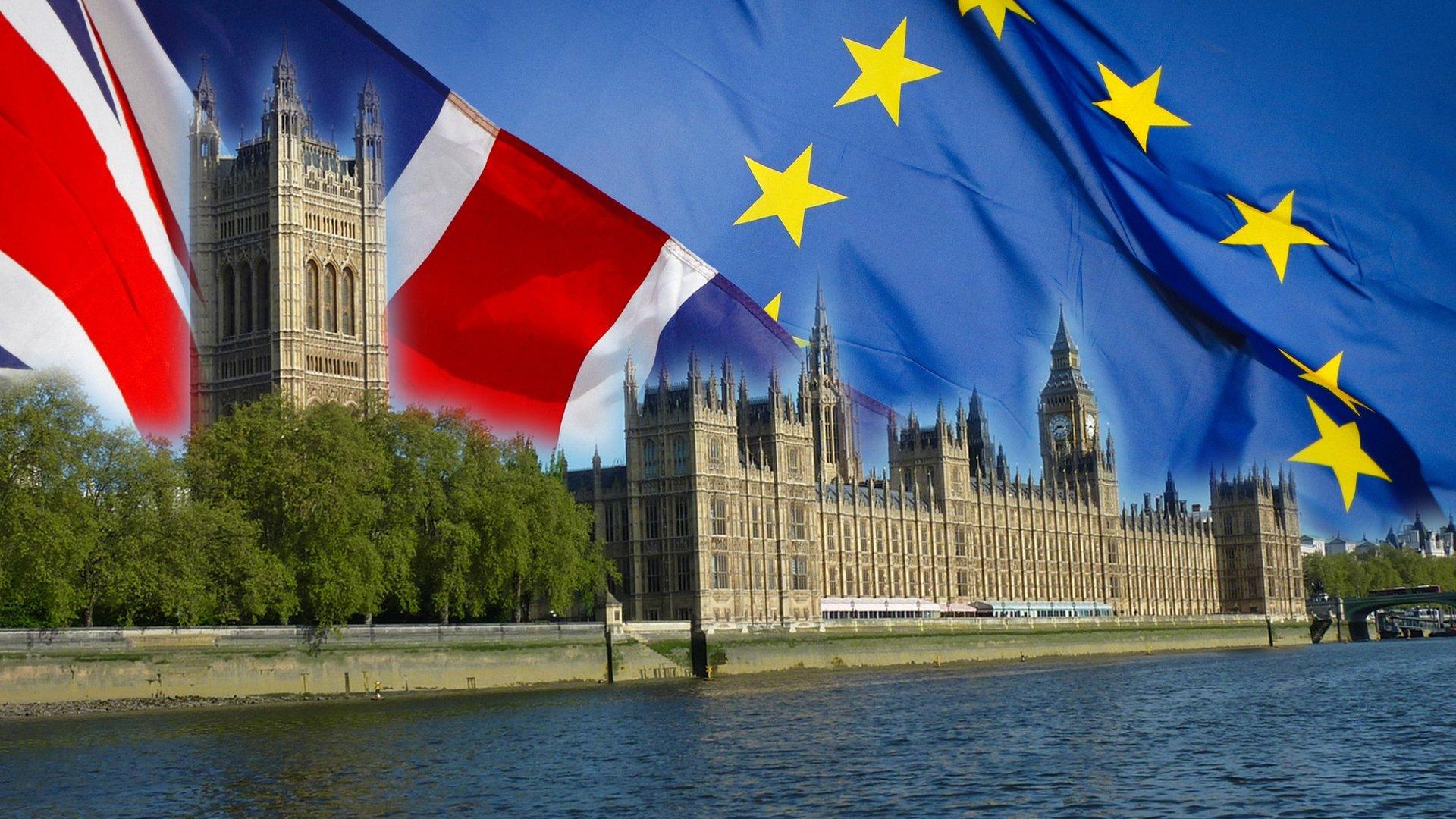Theresa May: Don't obstruct voters over Brexit
- Published
- comments

Theresa May has warned MPs not to "obstruct" the will of UK voters by changing the parliamentary bill aimed at getting Brexit talks under way.
The PM spoke as the Commons started detailed scrutiny of the European Union Bill, with Labour, SNP and Lib Dem MPs seeking concessions.
These include a guarantee that EU citizens resident in the UK at the time of last year's referendum can remain.
But Mrs May said she and EU leaders wanted to "get on" with Brexit talks.
MPs have already backed the principle of the bill, which would give Mrs May the power to trigger Article 50 of the Lisbon Treaty, starting formal negotiations on Brexit.
Labour has suggested it will not "frustrate Brexit" even if it fails to amend the bill in its committee stage this week, during which it will undergo more detailed scrutiny.
The government wants to notify the EU of its intention to leave, giving effect to last June's referendum vote and starting two years of talks, by the end of March.
For this to happen, MPs and peers must pass a bill giving their approval - a process expected to take about a month.
In a statement on the weekend's EU summit in Malta, Mrs May told MPs: "Our European partners now want to get on with the negotiations. So do I, and so does this House, which last week voted by a majority of 384 in support of the government triggering Article 50.
"There are of course further stages for the Bill in committee and in the Lords and it is right that this process should be completed properly."
She added: "But the message is clear to all - this House has spoken and now is not the time to obstruct the democratically expressed wishes of the British people.
"It is time to get on with leaving the European Union and building an independent, self-governing, global Britain."

Labour's former deputy leader is seeking guarantees for EU citizens in the UK
The legislation comes back to the Commons on Monday for three days of debate culminating in a vote on its third reading.
Among the amendments likely to be debated on Tuesday is one tabled by former Labour deputy leader Harriet Harman calling for a guarantee that all nationals of other EU countries lawfully resident in the UK at the time of last year's referendum should have the right to remain after Brexit.
Mrs May has said she wants an early agreement on their status but is resisting calls from many MPs to offer a unilateral guarantee - saying she wants reciprocal guarantees from other EU countries about UK citizens living on the continent.
Ms Harman's amendment has the backing of the Lib Dems, SNP and the one Green MP - although it would need the support of a number of Conservatives for it to pass.
Labour is also seeking a "meaningful vote" in Parliament on the final deal struck between the UK and the EU before it is voted on by the European Parliament.
The BBC understands some Conservative MPs have held discussions with Labour MPs about forcing the PM to concede a vote if there is no agreement on the UK's future trade relations with the EU.
Downing Street has insisted that it is "not contemplating" a scenario in which there is no deal with the EU and the bill does not need to be amended.
Ministers have said they believe the UK will be able to agree the terms of its separation and the outline of a trade deal within the two-year timeframe and even if there is no trade agreement, the UK will leave the EU anyway.
Labour divisions
There continue to be divisions in Labour ranks over whether to accept Brexit or not.
Ten shadow ministers were among 47 Labour MPs who rejected party orders to back the bill at second reading last week while shadow home secretary Diane Abbott missed the crucial vote, citing illness.
Shadow business secretary Clive Lewis has said he will vote against the bill at third reading on Wednesday unless Labour's amendments are accepted, describing them as "red lines".
Labour's shadow cabinet will discuss the party's approach on Tuesday but Mr Corbyn suggested on Sunday that Ms Abbott and others would be expected to follow the party line if a three-line whip is imposed for Wednesday's vote.
Also speaking on Sunday, shadow foreign secretary Emily Thornberry said there were "private conversations" taking place between the parties on trying to find "a compromise that will work".
She denied it was "illogical" to demand amendments but still back the bill in the final vote if they are rejected.

- Published5 February 2017

- Published2 February 2017
